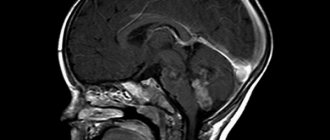Physical symptoms include:
- sleep disorders (difficulty falling asleep, nightmares),
- enuresis, encopresis,
- loss of appetite or, conversely, overeating,
- psychosomatic phenomena (for example, constant complaints of abdominal pain, headaches),
- increased fatigue,
- muscle tension.
HOW CAN PARENTS HELP THEIR CHILD IF HE IS EXPERIENCED PSYCHOLOGICAL TRAUMA?
The first thing that is absolutely necessary is to understand what happened. And for this you need to have constant and trusting contact with the child. Attention, love, a sincere desire to understand and sympathize - these are the main recipes. Give your children confidence in their abilities, teach them to cope with troubles, adversity and inevitable shocks.
But in the hustle and bustle of everyday life, it can be difficult for parents to notice the appearance of the above or any other changes in the child’s condition and behavior. They pay attention to this and begin to sound the alarm, as a rule, when the situation has gone too far. But even having understood what the problem is, not always adults, always busy with their urgent matters, know what and how to help.
Therefore, we strongly recommend that you consult with specialists - child psychologists. Modern diagnostic and correction techniques make it possible to quickly and most effectively identify and overcome psychological trauma in children, removing the risks of developing long-term negative consequences.
Stress in a child
What is stress
Stress is a nonspecific response of the body to any demands placed on it. This is the reaction of the nervous system to a variety of physical, mental and emotional stimuli.
Stress itself is important from the point of view of human evolution and survival. But this type of stress should not be confused with chronic stress, which can become the root cause of a number of physical and mental illnesses.
We are accustomed to the fact that stress is a phenomenon of the adult world. But today, children bear a huge burden of responsibilities - school homework, important tests, preparation for which takes place in a mode of intimidation from teachers and, sometimes, parents, the need to meet imposed standards for academic performance, and much more. In a state of constant pressure, children are also subject to stress.
Sometimes the symptoms are subtle, so it is important to be attentive to your child to prevent chronic stress.
In this article we will look at why stress is dangerous and what causes it. We’ll also try to figure out how to help children who are already stressed.
Stages of stress
Stress does not manifest itself immediately, but consists of three stages that manifest themselves progressively.
1. Primary anxiety (at this stage, children often withdraw into themselves, experiencing unusual melancholy and anxiety; physical changes do not yet affect the child, but distrust of the people around them appears).
2. Period of resistance (at this time the child’s psyche resists the stress experienced, tries to repress memories of a bad event, which is accompanied by a feeling of constant fatigue).
3. Exhaustion (mental exhaustion from stress turns into physical, aggression or apathy is caused by the fact that the nervous system ceases to control emotions).
Each stage is characterized by an increasingly depressed emotional state, and prolonged stress can ultimately turn into depression.
Causes of childhood stress
The most common sources of childhood stress are school and social problems:
— Moving and parting with loved ones
— Parents' divorce
— Inattention from parents (real or imaginary)
— Constant reproaches from parents, close relatives or teachers
— Bullying (bullying by peers)
- Abrupt change of routine or routine
— Beginning and end of the school year
— Exams and preparation for them
— Passion for aggressive computer games
— Lack of important vitamins and microelements (determined by the attending physician based on a series of tests)
Stress can occur even in children under one year old. For its cause, a change in diet, a mother going to work, a trip to a nursery, kindergarten, the appearance of a nanny, severe fright or a long-term illness, as well as a quarrel between parents are enough.
Signs of stress in children
It is very important to recognize stress early and not ignore its signs. Stress in children can be identified by a number of symptoms:
- Frequent mood changes
— Aggression
— Sleep disturbances
—Enuresis
— Falling into childhood (a child of seven years old can begin to behave like a baby - sucking a finger, eating from a spoon only with the help of parents, etc.)
– Frequent headaches, abdominal pain and other physical discomfort
— Decreased concentration and decline in academic performance
— Closedness
— Nightmares and phobias
- The desire to control everything
— Escape from reality (avoiding encounters with unpleasant people and situations, simulating illnesses against this background)
In children, these dangerous signs can be supplemented by bad habits - thumb sucking, nail biting, nose picking for no reason, etc. For older guys, this is often an inadequate aggressive reaction.
Consequences of stress in a child
How does stress affect a child? Under the influence of stress, the risk of cardiovascular diseases increases 4 times. Various chronic diseases worsen, self-control worsens.
Chronic stress in childhood can trigger a number of different mental illnesses in adulthood. After all, most disorders in adults are associated with childhood phobias and psychological trauma.
Treatment of stress in children
How to cope with stress for a child? The child will not be able to cope with stress on his own. The help of parents and specialists is mandatory. Treatment varies depending on the condition of the child and the capabilities of the parents.
Help from the parents themselves. You can start by identifying and eliminating the source of your stress. Become a support for your child, give him the confidence that you will support him in any situation. Allow him to express his emotions. Discuss his experiences together. Raise his self-esteem. With young children, work through stressful situations through play.
Therapist. If the parents have eliminated all sources of stress, but the child is already at the “point of no return,” you should contact your attending physician, who will give directions for various examinations of the body and, most likely, refer you to a neurologist or psychologist.
Psychotherapy. If you have reached this stage, no need to worry. A psychologist and even a child psychiatrist will not put an end to your child’s future, but will only help him get out of the current situation with minimal losses to his health. The help of a psychiatrist does not necessarily mean drug treatment, which will simply relieve the symptoms that are currently disturbing. In any case, a new regime will be recommended, which will prevent further stress.
Physiotherapy. As supportive procedures, the doctor may prescribe massages, swimming, therapeutic baths, and dietary nutrition.
Preventing stress in children
It is very important to develop stress resistance. The best prevention of stress in children is regular rest, a healthy routine, and physical exercise.
It is necessary to maintain sleep hygiene - let the child go to bed and wake up at the same time; You should not go to bed in an overexcited or upset state; you need to sleep a sufficient number of hours and continuously; Before going to bed, you can take a cool or warm shower to relax your body; do not read or play in bed, especially before bedtime; Limit computer games and exercise in the evening.
One of the most important components is physical activity. It helps children increase their resistance to stress and relieves unnecessary emotional stress. Try to include various workouts in your child’s life at least 3 times a week for 30-40 minutes. There can be a lot of options, the most popular and accessible are walks in the fresh air (especially in the forest and park), swimming in the pool, cycling, dancing, etc. Yoga classes for children are also becoming popular, which will help strengthen the musculoskeletal system and improve stretching and posture. The most important thing is to make classes regular.
Another component of stress prevention is a balanced diet, which contains all the necessary vitamins and microelements.
If the mother is happy and calm, the child will most likely also be in a state of harmony. The child copies the behavior model primarily from his family. Take a closer look at yourself before sounding the alarm and taking your child to a specialist.
| Note: Robotics for children will improve communication skills, creative thinking. It is easy to purchase courses on developing and reviving robots at the POLYCENT educational center. We conduct aircraft modeling courses, where students learn the basics of technical modeling. |











